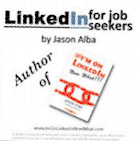Rules for job hunting and interviewing have become so institutionalized and complex that employers and managers make themselves look downright silly. My guess is that this is costing their companies dearly.
It’s bad enough when job hunters over-think how they are going about it — but it’s sometimes scary when employers reveal how they judge people they interview.
The New York Times offers an article titled Subtle Cues Can Tell an Interviewer “Pick Me” in which employers talk about the subtle cues they look for when reviewing job applicants. While such insights into the mind of the employer are interesting and potentially useful, some of this stuff reveals how kooky candidate selection sometimes is.
One employer takes a dim view of applicants who don’t wear a suit to an interview. So what happens when a guy shows up in a sport coat and tie, but is otherwise an outstanding candidate? Is it so hard to tell him, “Hey, we really like you. But if we hire you, we’d expect you to wear a suit to work. Is that okay with you?” Clothing can be shed and changed more easily than our skills and attitude. How many good candidates are lost to employers because managers are stuck on a rule about clothing?
Just how important is that suit, really? (Is it worth a Porsche? I’ll tell you in a minute.)
Another manager quoted in the article seems to sacrifice good candidates because they use paper. David Santos, executive director of human resources for Interbrand, a brand management firm, has exacting standards when it comes to paper and e-mail. Which should a candidate use when sending him a follow-up thank you note? “Mr. Santos’s preference shows how tricky this can be.”
Tricky?
“He says that for a company like his, which is more digitally focused, it would show a lack of awareness to send a traditional thank you note through the mail.”
If that’s not over-thinking and over-analyzing someone’s behavior, then I’m a monkey’s uncle. Does Santos really think that a thank you that arrives in snail-mail reveals a digital dunce? A weak candidate? An unaware candidate?
I pity job hunters who walk away from this article believing they understand the rules better.
Look, I think it’s helpful to see how managers think. There are some good reminders in the article. But the biggest reminder is this: Managers sometimes over-think the hiring process because they don’t have clear criteria about who they want to hire. This leads them to focus on easier, goofier, factors.
The manager who wants a suit, Susan L. Hodas, director of talent management at NERA Economic Consulting, “is also looking for people who can enunciate their words (mumblers beware) and who can communicate their thoughts and ideas clearly.”
That’s just fine — but that suit is gonna cost her because now she’s begging job applicants to give her a good look up and down. Hodas talks about “the airport test” that she and her staff use to judge job applicants: “Would I want to be stuck in the airport for 12 hours with this person if my flight was delayed?”
Stuck in an aiport with me, she’d blow it because I’m a stickler for proper grammar. She insists on good communication skills but fails to use the correct subjunctive mood of the verb to be. She should have said, “…if my flight were delayed.” Is she illiterate? I dunno… but where’s her suit?
Over-thinking the job interview — or any interaction we have with others — is risky. It’s pretty foolhardy — and sometimes costly — to judge so narrowly. The “tips” circulated in articles like this one from The New York Times start to get silly and managers who portray nitpicking as judgment do everyone a disservice.
Let me tell you about a Porsche saleswoman who lost a nice sale because she was thinking too hard about people who walked into her dealership: The Horse’s Ass in the Rear-view Mirror.
I fired her on the spot.
.

